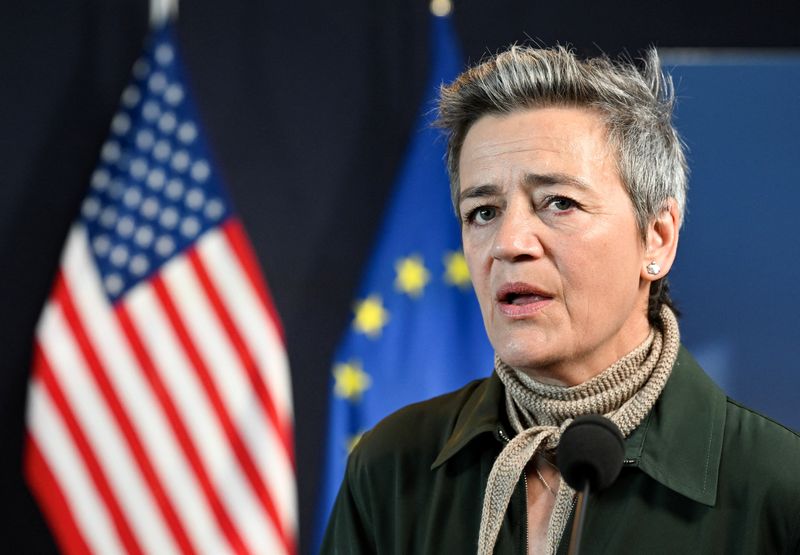[the_ad id="21475"]
[ad_1]
© Reuters. FILE PHOTO: European Commission Vice President Margrethe Vestager attends a press conference, in Lulea, Sweden May 31, 2023. Jonas Ekstromer/TT News Agency/via REUTERS
By Philip Blenkinsop
LULEA, Sweden (Reuters) -EU tech chief Margrethe Vestager said on Wednesday she believed a draft code of conduct on artificial intelligence (AI) could be drawn up within weeks, allowing industry to commit to a final proposal “very, very soon”.
Policymakers and many in industry have expressed concern about AI, and particularly content-creating generative AI such as ChatGPT, with some equating it to the risks posed by pandemics or nuclear war.
Vestager said the U.S. and European Union should push a voluntary code of conduct to provide safeguards while new laws are developed.
“Generative AI is a complete game-changer,” Vestager, who is a vice president of the European Commission, told a news conference on Wednesday after a meeting of the EU-U.S. Trade and Technology Council.
“Everyone knows this is the next powerful thing. So within the next weeks we will advance a draft of an AI code of conduct,” she said, adding she hoped there would be a final proposal “very, very soon” that industry could sign up to.
The European Union’s AI Act, with rules on facial recognition and biometric surveillance, is still going through the legislative process.
“In the best of cases it will take effect in two and a half to three years time. That is obviously way too late,” Vestager told reporters before the meeting of the TTC in Sweden. “We need to act now.”
Leaders of the G7 nations called earlier this month for the development of technical standards to keep AI “trustworthy”, urging international discussions on topics such as governance, copyright, transparency and the threat of disinformation.
Vestager said there needed to be agreement on specifics, not just general statements, suggesting the European Union and the U.S. could help drive the process.
“If the two of us take the lead with close friends, I think we can push something that will make us all much more comfortable with the fact that generative AI is now in the world and is developing at amazing speeds,” she said.
Click Here to Read the Full Original Article at All News…
[ad_2]
[the_ad id="21476"]
